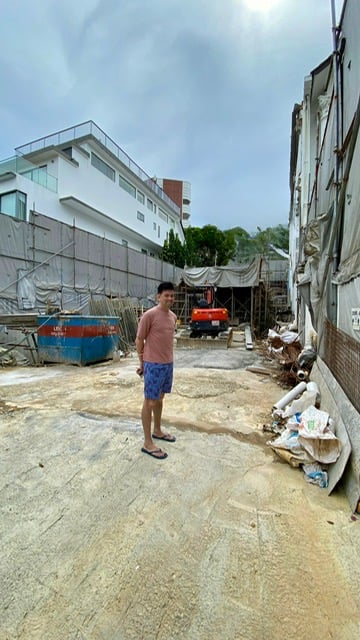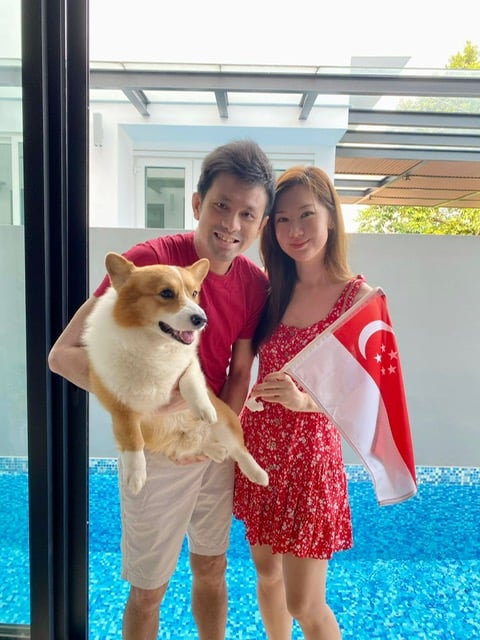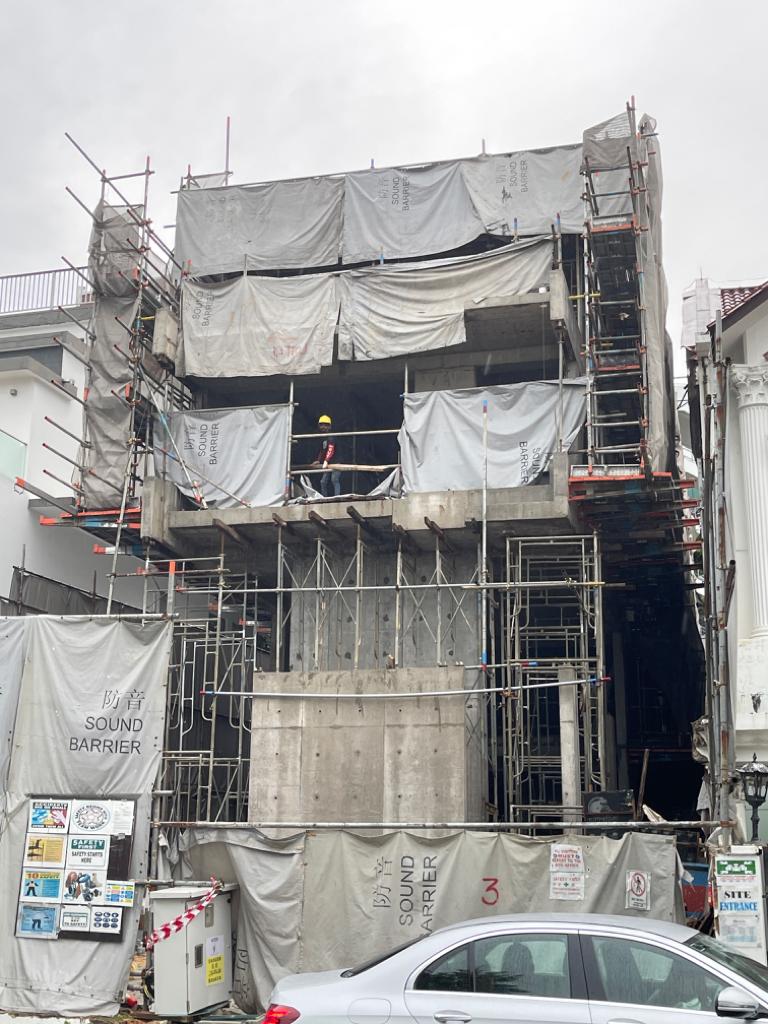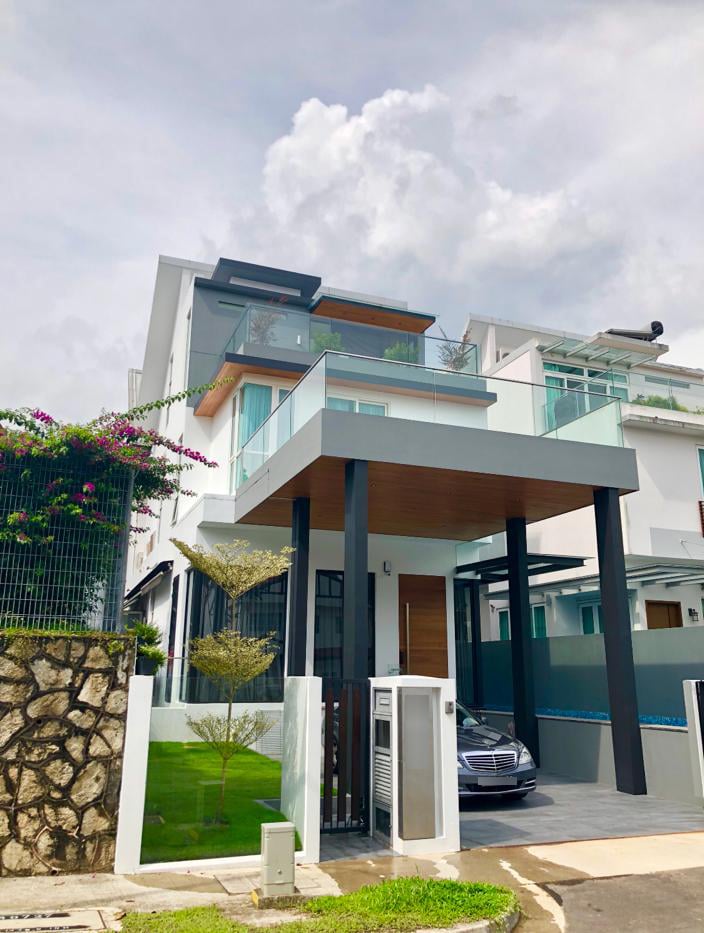When a new launch condo hits the market, not everyone can get in front of the camera and talk about property investments as if it is your life’s blood (unless you’re a property agent of course).
For 39-year-old Eric Chiew, who is not a property agent, but a financial advisor-cum-YouTube personality, what he does seems to have bucked the trend (at least for many who follow him on YouTube). While younger audiences follow TikTok and IG personalities on first-home topics like how to BTO, get a queue number and renovate your flat, Chiew’s target audience is gentrifically different.
His YouTube channel, which at the time of this publication, has about 21k subscribers and 221 videos, began about 4 years ago. It appeals to seasoned homebuyers and investors, and focuses more on property investing, asset appreciation, buying and selling, and finding the right time to enter (and exit).
One formula that sets Chiew apart is his humour, as he occasionally peppers his videos with Singlish and neighbourhood chit-chat, giving viewers an “eh, got lobang or not?” (translated: exclusive tips) scoop on things. His famous buzzwords include “huat kueh” (ie. earning profits represented by prosperity Chinese rice cakes), “chai tow” (ie. getting chopped (or receiving the short end of a stick) like a carrot or radish) and “exit strategy”.
Among property agents and home investors, he’s probably a household name – a familiar face at least, whose honest opinions and humour on the property scene will continue to educate and entertain. We’ve asked Chiew to share his property-buying journey, what defines him and whether he has any advice for our readers.
What led you to become interested in property investment?
I am from a low-income single parent family. I lost my mother to cancer when I was 18 years old. I was homeless for a period of time, renting room to room from relatives and church friends. I began to work very hard to earn more money in a corporate banking job when I was 22 years old, after National Service.
It was at this point in my life where I met several wealthy people who taught me about investments and properties.
At the time, I saw many beautiful houses, and hoped that I could one day own one such property. This is how I started my journey at the age of 26, where I purchased my first property with my ex-boss. I made my first pot of gold from this property after three years. It gave me a lot of confidence and a clear direction to build my property portfolio.
My first property was a 2-bedder condo at Leonie Studio. I placed S$100k as downpayment, and got back S$200k after the unit was sold. I also bought a new launch condo, Bartley Ridge, with my wife, which gave us the capital to buy our landed properties.
Where do you currently stay?
I’m currently staying in a semi-detached house in the Holland-Bukit Timah area, which I bought when I was 33. Coincidentally, I will be moving to my new house – a bungalow – next year. It was purchased during the COVID-19 pandemic in 2020 when I was 36.
While still under construction, it has a build-up area of 9,000 sqft and is located in the Newton-Bukit Timah area. Recent transactions in the vicinity are trending at S$3,800 to S$4,200 per square foot.

What attracted you to the property? What were your considerations in deciding to stay there?
I believe that our living environment makes a difference to our mindset, so I decided to move to Bukit Timah to have a good family life with my wife.

Have the rising property costs in Singapore affected your outlook on investing?
We (my wife and I) are deeply blessed that our business has not been affected. In fact, it has been growing well. We will continue to save and invest since there are a number of uncertainties in the property market right now.
Perceived uncertainties are due to a lack of knowledge in buying the right property at the right location. The high costs involved, in addition to rising interest rates, brought about further anxiety to many home owners and investors.
The solution is to still definitely get into the property market in the right location. It will never get easier if one continues to wait. I would suggest for anyone to start as soon as possible in getting a bigger place in the right location. The property market in Singapore will certainly continue to grow on an upward trajectory.
What specific types of properties do you invest in, and why do you prefer them?
I love residential properties, especially the freehold landed sector, as there is a very low supply and high demand.
How do you assess potential investment opportunities in the Singapore property market? What are the key factors that you consider?
It primarily depends on one’s budget. Each type of property has its ‘sweet spot’ on the entry price. Assuming that one’s budget is about S$2 million, you can consider a three-bedroom at the city fringe area, or a 3- to 4-bedder in the OCR (Outside of Central Region). Everyone should work within their budget. It is important not to over-leverage.
If your budget is below S$1.8 million, the OCR is definitely a very good area to explore. A budget higher than S$1.8 million means you can consider the city fringe (RCR, or Rest of Central Region). The city fringe area enjoys a very high demand from upgraders, it is therefore easier to enter and exit with a healthy profit.
Besides entry price, buying into the right area is very important. Some areas have very low growth. Research is critical. For example, we should consider factors like new shopping malls, upcoming MRT stations, and 1km from good primary schools, when we assess areas with high growth potential. These considerations will ensure greater certainty on favourable rental returns and capital appreciation.

Are there specific areas or neighbourhoods in Singapore that you find promising for investment right now?
If you look at the URA Master Plan, the government wants to build up regional centres for people to work near where they live at great convenience. Such areas include, Punggol, Bayshore, Clementi, Jurong and many more. The most promising growth area right now is Tengah. I view it as the next Punggol, where it will be undergoing the biggest transformation in the next decade as planned by the government.

Are there any specific goals or milestones that you aim to achieve with your property investment journey in the future?
I hope one day I can buy a GCB. I think that is the one of the most inspiring achievements in one’s property journey.
Any advice for our readers who are making their next step towards buying similar properties (or going through the same journey as you are) in Singapore?
For readers who are also trying to upgrade from a condo to landed property, it may not be an easy journey as there are many factors to consider in the purchase of a landed home. My advice is to focus on the location and land size.
Look for a good landed area within your budget. You can start from the OCR, followed by the city fringe, and move to the CCR when you have accumulated profits.
–
–
Inspired by Eric’s story? Let us help you get the right price by connecting you with a premier property agent.
If you found this article helpful, 99.co recommends Is there an optimal holding period to maximise capital gains? We look at resale EC transactions in June 2023 and Which types of condos were bought below S$1 million since the start of 2023?
The post A quick chat on being property-savvy with Eric Chiew, YouTube personality appeared first on .












